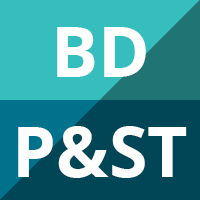
Ketogenic diet and other dietary treatments for epilepsy
Abstract Background The ketogenic diet (KD), being high in fat and low in carbohydrates, has been suggested to reduce seizure frequency. It is currently used mainly for children who continue to have seizures despite treatment with antiepileptic drugs. Recently, there has been interest in less restrictive KDs including the modified Atkins diet (MAD) and the […]

Care delivery and self-management strategies for adults with epilepsy
Abstract Background Researchers have criticised epilepsy care for adults for its lack of impact, stimulating the development of various service models and strategies to respond to perceived inadequacies. Objectives To assess the effects of any specialised or dedicated intervention beyond that of usual care in adults with epilepsy. Search methods For the latest update of […]

Interventions for psychotic symptoms concomitant with epilepsy
Abstract Background This is an updated version of the original Cochrane review published in Issue 4, 2008. People suffering from epilepsy have an increased risk of experiencing psychotic symptoms. The psychotic syndromes associated with epilepsy have generally been classified as ictal, postictal, and interictal psychosis. Anticonvulsant drugs have been reported to precipitate psychosis. Moreover, all […]

Subpial transection surgery for epilepsy
Abstract Background Nearly 30% of patients with epilepsy continue to have seizures in spite of using several antiepileptic drug (AED) regimens. Such patients are regarded as having refractory, or uncontrolled, epilepsy. No definition of uncontrolled, or medically refractory, epilepsy has been universally accepted, but for the purposes of this review, we will consider seizures as […]

Non-pharmacological interventions for epilepsy in people with intellectual disabilities
Abstract Background Approximately 30% of patients with epilepsy remain refractory to drug treatment and continue to experience seizures whilst taking one or more antiepileptic drugs (AEDs). Several non-pharmacological interventions that may be used in conjunction with or as an alternative to AEDs are available for refractory patients. In view of the fact that seizures in […]

Neuropsychological and psychological interventions for people with newly diagnosed epilepsy
Abstract Background Many people with epilepsy report experiencing psychological difficulties such as anxiety, depression and neuropsychological deficits including memory problems. Research has shown that these difficulties are often present not only for people with chronic epilepsy but also for people with newly diagnosed epilepsy. Despite this, there are very few published interventions that detail means […]

Yoga for epilepsy
Abstract Background This is an updated version of the original Cochrane review published in The Cochrane Library, Issue 1, 2002. Yoga may induce relaxation and stress reduction, and influence the electroencephalogram and the autonomic nervous system, thereby controlling seizures. Yoga would be an attractive therapeutic option for epilepsy if proved effective. Objectives To assess whether […]

Acupuncture for epilepsy
Abstract Background Acupuncture is increasingly used in people with epilepsy. It remains unclear whether existing evidence is rigorous enough to support its use. This is an update of a Cochrane review first published in 2008. Objectives To determine the effectiveness and safety of acupuncture in people with epilepsy. Search methods We searched the Cochrane Epilepsy […]

Psychological and behavioural treatments for adults with non-epileptic attack disorder
Abstract Background Psychogenic non-epileptic seizures, also known as non-epileptic attack disorder (NEAD), have the outward appearance of epilepsy in the absence of physiological or electroencephalographic correlates. Non-epileptic seizures can occur in isolation or in combination with epileptic seizures. The development and maintenance of non-epileptic seizures has been well documented and there is a growing literature […]

Interventions for preventing and treating pelvic and back pain in pregnancy
Abstract Background More than two-thirds of pregnant women experience low-back pain (LBP) and almost one-fifth experience pelvic pain. Pain increases with advancing pregnancy and interferes with work, daily activities and sleep. Objectives To assess the effects of interventions for preventing and treating pelvic and back pain in pregnancy. Search methods We searched the Cochrane Pregnancy […]

